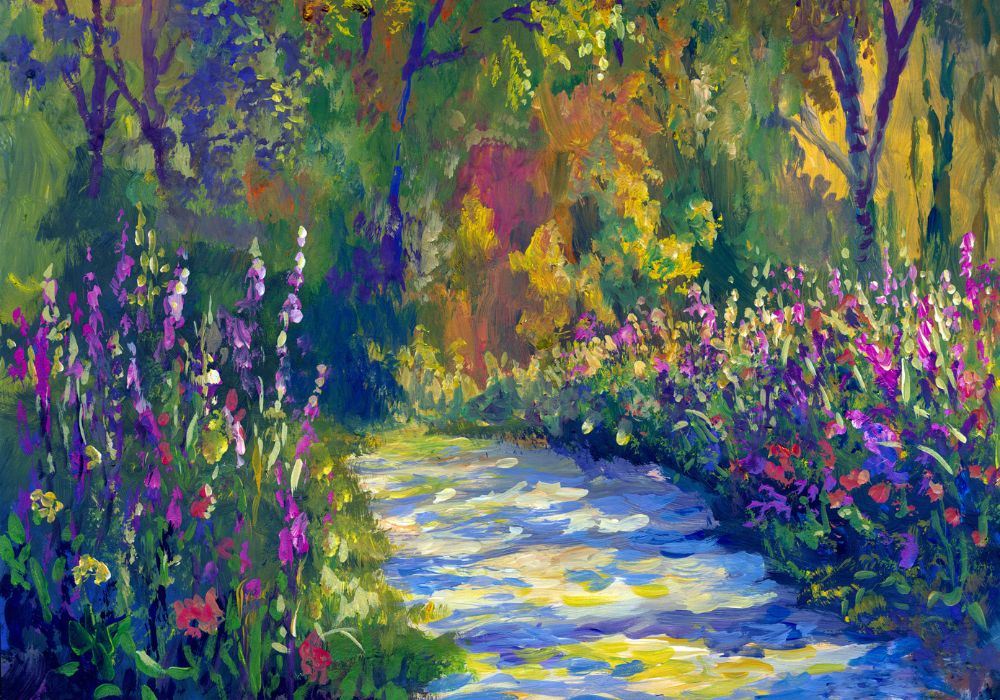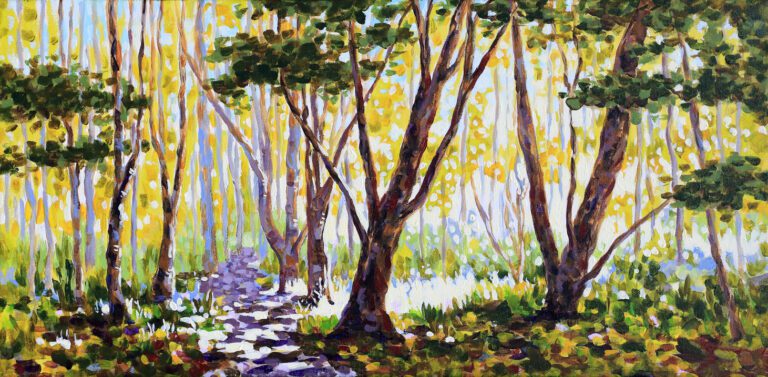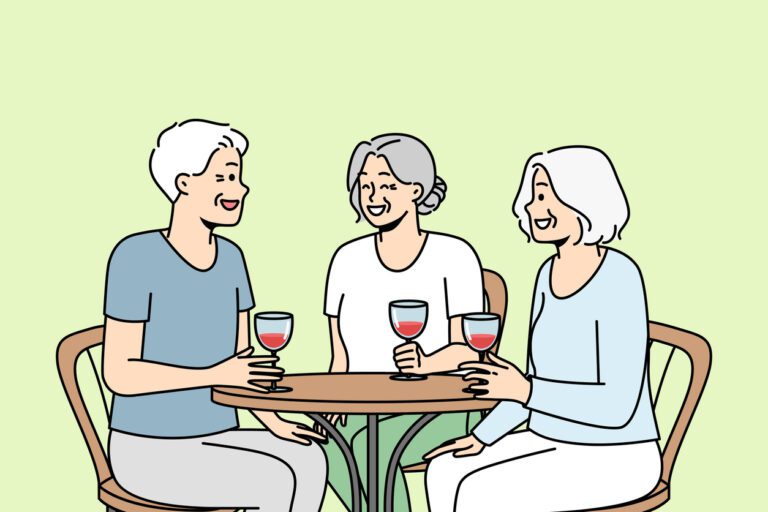My dear and loving artist husband of so many years has left me forever. He contracted motor neurone disease. This truly insidious disease slowly rendered helpless that once strong, active man, to wait for death which would surely come. The diagnosis, then the prognosis in the same breath. No cure, two to five years to live. Others have lived longer. An unbearable death where the body shuts down. For him, the legs first, so he could no longer walk, then his arms, so he could no longer paint or draw, finally his breath, his lungs so compromised he could no longer breathe. We were unable to absorb the facts of this disease.
We were numb with fear. We felt defeated. Death just around the corner. How could this be? How could it happen to us? We were far too fit and healthy with lots of living still to do, joyful days with the family, our camping and walking in our beautiful bush, his drawing and painting and our garden.
His health had been good, lots of happy energy, every day a blessing, swimming, walking, a little bit of gardening until tiredness struck, way out of proportion to that which he was engaged. And then the shuffling and a grey pallor replacing the healthy pink.
After many doctors’ visits we were given the diagnosis, like a blow to the body.
The house was no longer ours, but became a walk-through where carers, carpenters, doctors, nurses and physiotherapists entered daily. The list of visitors seemed endless. There was a steep learning curve for us in the adjustment to all the equipment and machinery that came into the house. It was set up with efficiency and speed and after just a few trial runs we were on our own. Never the best with technology, it put an enormous strain on us to make sure every piece was correctly set up. Especially the respirator which would take over his breathing.
We were thankful for all this attention, but it was just a stop-gap measure. The battle was lost already. He did not give up but fought it till the end. He was so strong and courageous.
Our saving grace was our garden.
We loved our garden, well now it’s just my garden. But it was kind to us. It never asked for much. It would never win an award for best garden. Our garden really was a little unruly. But the feel of it so calming. Not being true gardeners we could never bear to cut it back. So it grew wild and woolly. It formed a green and gold refuge, protecting us from the outside. Humans developed to be calmed by the sight of lush green forests and it was so true for us. It was our panacea when our suffering became greatest. Where we found solace.
It was a garden of mostly Australian native trees and plants, some transplanted from bushland we loved. Tiny little plants which really looked too small to survive. But with his loving care they thrived, three little peppermint bushes taken from near a rushing cold river and two she-oaks which now whisper seductively and shed their needles in a soft bed. Enough to sit on.
There were wattles, with their beautiful burst of the most glorious yellow blossom, found almost everywhere. They heralded the coming of spring and lightened up dark and desolate winter days, when the skies stayed black and grey for interminable lengths of time.
Then there were the colourful grevilleas, growing freely and wildly if allowed or just as easily kept in check. With their blossom a riot of striking colours, from white to crimson and all colours in between, flowering most of the year.
A mecca for birds, especially the yellow honeyeater. They could be seen hanging upside down on delicate petals, enjoying the nectar.
Then there were the diosmas, unassuming easygoing plants never making much fuss, with the common name of “breath of heaven”. They had the tiniest pink or white star-like flowers when in bloom.
Finally, the dwarf peppermint. I think that the name may be a misnomer as once into the ground they grew quickly heavenward as if reaching for the sun. They were sometimes mistaken for the lovely weeping willow.
We had a number of fruit trees, the mulberry, a most prolific producer of choice, fat, ruby red morsels of deliciously sweet fruit, our favourite. After the devastating diagnosis, we would sit every day under that mulberry tree and try to make sense of this new life thrust upon us. We would have our coffee with crackers and cheese, quince paste and sometimes pluck a mulberry or two from the branches around us. We would absorb the goodness and tranquillity of our garden. We mostly came to terms with this prognosis in our garden.
We weren’t the only ones who availed ourselves of its joy and beauty. Birds of all sorts flocked to the nectar, zigzagging across the garden as if they all had specific flight plans. The bees seeking the nectar and pollen and insects of all kind went about their business. It was full of industry. Ants made a highway over our shoes and a mouse scurried through the fallen leaves. A beetle with a carapace of beautiful turquoise and gold slowly inched passed like a jewel looking for a crown.
So we made the most of our garden. It was April, the weather gentle and the sun kind. The peppermints were our favourites. They shaded a large portion of the lawn and yielded and swayed in the breeze, that green and shade a balm on the hot summer days. But they were unstoppable, their proportions dwarfing everything around. They enclosed us. Contrary to the name, the aroma from their scrunched-up leaves was not peppermint but beautiful eucalyptus, balm for the soul.
After my husband passed away, the garden was for a good while left to its own devices. I could no longer bear to sit in our chairs under the mulberry tree, where every branch, every leaf, every flower seemed to remind me of him. It took me a while to allow myself back into the beauty of it all. But I did eventually venture back. A feeling of calm, like soft velvet spread gently over me and I felt sure the garden was caring for me, being protective of me. After much time, this soft aura lifted and I viewed the reality of the garden and how unruly it had become. And oh yes, it did need a little cut back. It was more than wild and woolly and I realised it was getting away from me, but still beautiful.
With much sadness a crew was called in to do the dastardly deed! To cut the garden back! As it happened these were no tree surgeons – more cowboys really, out to make some quick money. I had found a flyer in the letterbox and thought they would be reliable, but I do blame my state of mind at the time for this decision. To them a tree was just an object – trunks, branches, leaves – to be disposed of when necessary. A job to be done.
My heart nearly broke as they began shearing through the bushes. Limbs dropped indiscriminately. Eucalyptus aroma filled the air. Big-booted feet kicked branches aside. If the trees could bleed, there would be blood everywhere.
I hurried inside, unable to watch this murder.
In a while they knocked on the door and asked if it was cut back to my satisfaction. I looked at the calamity that was my garden. What could I say but yes, pay them and send them on their way. Never to employ them again. I lay on my bed with my sadness and hoped my garden would recover from this trauma.
From my kitchen window I looked out on what had become an eyesore. Bare branches, naked in the sunlight, and I felt for their nakedness. They begged for blankets or a coat. Now it was still and quiet in the garden. No life at all, eerie even.
For the next few weeks the garden had a different feel to it, a different look. It was slightly unsettling without the bird call. Later I could see a change, feel a change. The bush, especially the one in my direct line of vision from the kitchen window, was beginning to regain some of its former glory. Tiny copper leaves had broken through, festooning the limbs, glittering in the sunlight. But the more it developed the more it seemed a creature was evolving; and not a happy one. Branches like bony arms and fingers seemed to appear, grasping and flailing in the wind as if grappling for something. The more leaves appeared the more it looked ominous. I became afraid of it as it seemed full of menace.
I eventually walked by the bush and felt sure a spindly shoot from the tree grasped for my arm. Was I becoming delusional? I had heard it said one can go mad with grief in the first year. Now I became so afraid of the bush; I dared not walk past it. I could only stand and watch it through that kitchen window.
Weeks passed. One day I decided I must check the entire garden, which meant walking past that bush. As I walked closer those branches did reach for me. I moved away but was not quick enough. Spindly branches caught my cardigan and, though I tried to slip out off it, more branches reached for me. Now I was caught by my dress. Other thin branches caught my hair, my legs, drawing blood which dripped down into my shoe. I was enmeshed. I did not dare cry. That bush with all its leafy arms pulled me into it. I struggled, but that made matters worse. Little branches joined the fray and I felt as if all of the bush was enjoying this melee, all of it at war with me, the whole garden meting out some sort of punishment. Gone was that softness I had felt in the garden.
I stopped struggling and relaxed. Then the bush became less aggressive, softer. I fell into it, wrapping my arms around as much of the foliage as I could, leaning into its heart. I whispered to it. I took some leaves and rolled them between my fingers, releasing the beautiful aroma. The bush slowly released me. I freed myself from the littlest of the branches still wanting to be attached to me. I stepped back. Of course the bush had been angry at its treatment by the ruffians who cut it back, but I also think it was just as sad as I was now that he had gone.
In future I will be so much more careful when the garden needs a cutback.
We now have the beautiful dwarf peppermint tree returned to us in all its former glory. I say “we” now because it always was our garden, together. Birds sing through the garden, the honeyeaters rest on the grevillea. They sway sensuously in the slight breeze. The willy wagtails search for morsels on the lawn. The black crows speed around in an attempt to scare everyone off. The doves dawdle, the ducks glide in, and the dulcet tones of the morning magpies are all a panacea to a broken heart.
The garden is now back to its former glory, but I shall take some time.
About the Author
Being an avid reader from an early age gave Marion Smith a passion for words and writing and a curiosity about people, things and ideas. Following her husband’s death, Marion retreated into her writing and she now finds that writing daily keeps her anchored. Writing about grief also helped her process her sadness. Marion writes children’s stories and finds pleasure in writing about everyday life with all its ordinariness, its quirks, its humour and its kindnesses. Since 2019, Marion has been a member of Karrinyup Writers’ Club.







